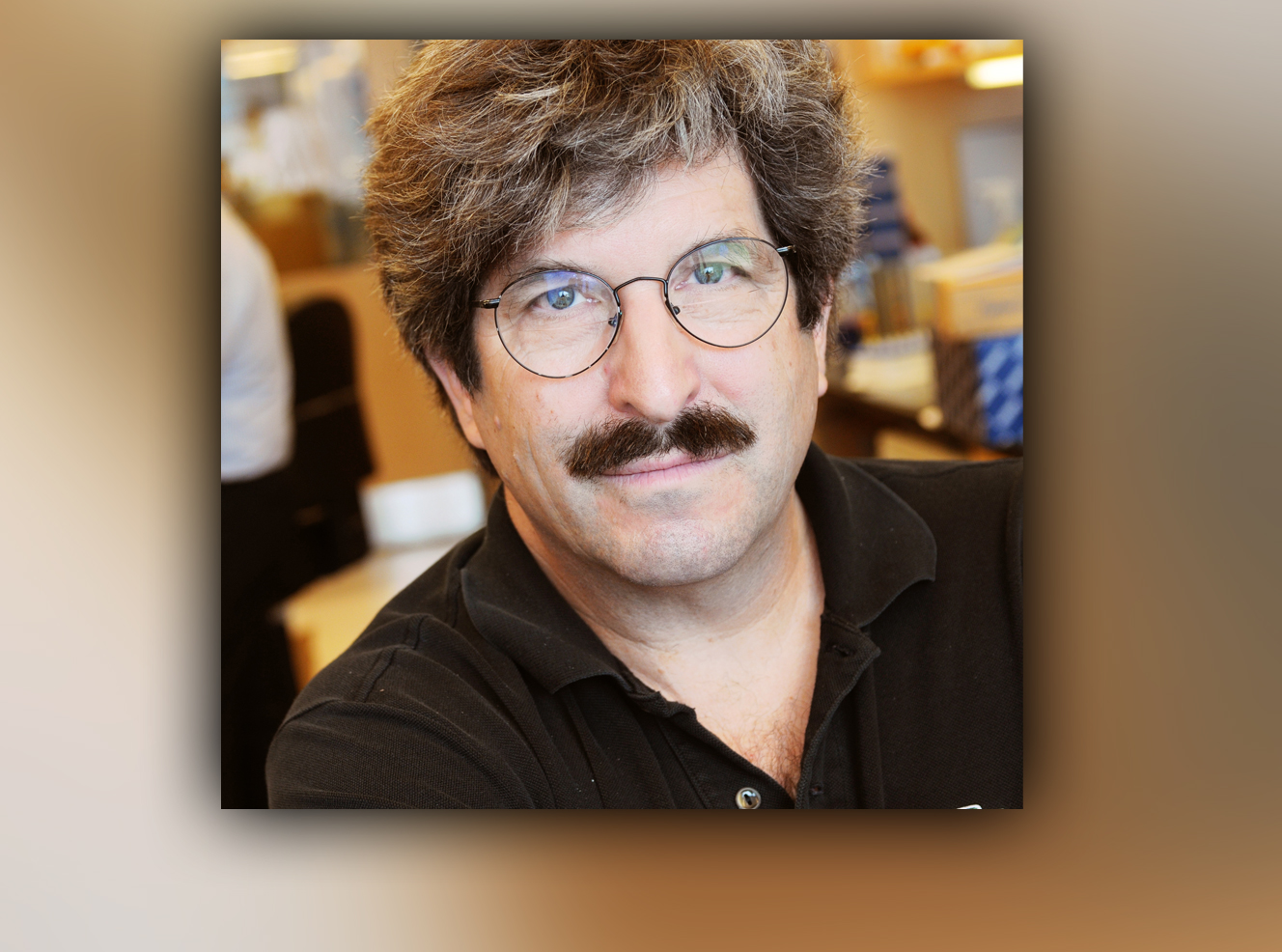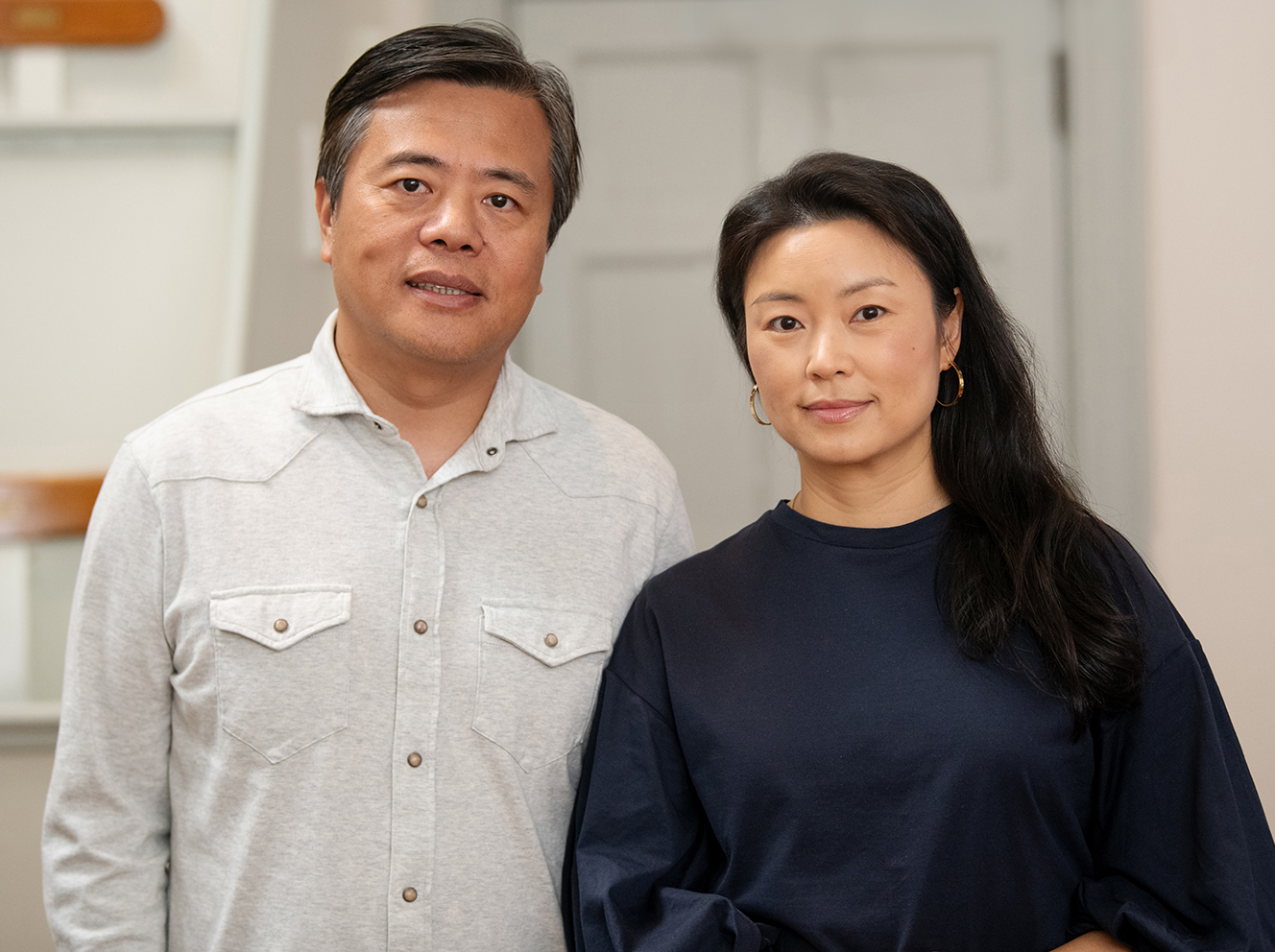Endowed MGH Research Institute Chairs
Endowed MGH Research Institute Chairs create an enduring reservoir of funding and help us recruit, recognize, reward and retain Mass General’s top scientific talent.
These chairs provide flexible, sustainable, long-term support to outstanding investigators whose work and collaborations typically cut across Mass General’s many departments and centers. In turn, these accomplished senior researchers recruit, mentor and train the next generation of research leaders.
We are grateful for the support of visionary donors, who have helped us establish eight Endowed MGH Research Institute Chairs since 2015.

Margarita Alegría, PhD | Harry G. Lehnert, Jr. and Lucille F. Cyr Lehnert Endowed MGH Research Institute Chair
The inaugural Harry G. Lehnert, Jr. and Lucille F. Cyr Lehnert Endowed MGH Research Institute Chair is Margarita Alegría, PhD.
Dr. Alegría joined the Mass General community as Chief of the Disparities Research Unit at the Massachusetts General Hospital and the Mongan Institute in 2015. Her career has focused on testing new models of care and interventions for improving health care and eliminating health care disparities for diverse populations.
She was Principal Investigator of the International Latino Research Partnership, which tested a model of integrated care for Latino immigrants with co-occurring substance and mental health problems in Barcelona, Madrid and Boston.
She also led an NIA/NIH-funded study examining how to successfully build collaborative research for the provision of evidence-based mental health and disability prevention treatments for racial/ethnic minority elders in community-based organizations. Dr. Alegría co-directed the National Latino and Asian American Study, the most comprehensive psychiatric epidemiology study of Latinos and Asian Americans ever conducted in the United States.
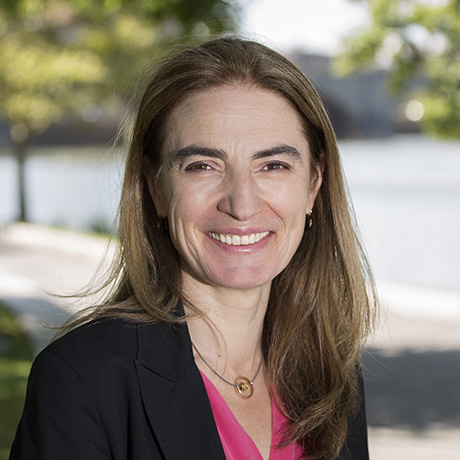
Gabriela Apiou, PhD | Endowed MGH Research Institute Chair in Translational Sciences
Gabriela Apiou, PhD, was named the named inaugural incumbent Endowed MGH Research Institute Chair in Translational Sciences.
Gabriela Apiou graduated from University of Transylvania, Romania with a bachelor’s degree in Mechanical Engineering. She received her PhD in Biomedical Engineering from Ecole Nationale Supérieure des Arts et Métiers Angers, France and her Habilitation à Diriger des Recherches in Health and Life Sciences from University of Paris Est Créteil, France.
Between 1995 and 2011, Dr. Apiou worked for global leaders in the biomedical engineering and pharmaceutical industry, where she built and established an international research and development entity focusing on inhaled therapeutics and delivery devices. Her expertise is in applying physics and engineering principles to solve relevant clinical problems and in translational sciences.
Since 2011, she has been working at Mass General as the Director of the Translational Research Core in the Wellman Center for Photomedicine and since 2015 as the Director of Strategic Alliances in the Office of the Scientific Director of the Mass General Research Institute.
Dr. Apiou’s primary focus is on teaching and practicing unique models of innovation through collaboration across academia and industry to deliver new solutions to major health care challenges.

Jill M. Goldstein, PhD, MPH | Helen T. Moerschner Endowed MGH Research Institute Chair in Women’s Health
The inaugural incumbent of Helen T. Moerschner Endowed MGH Research Institute Chair in Women’s Health is Jill M. Goldstein, PhD, MPH.
Dr. Goldstein, the Executive Director of the Women, Heart and Brain Global Initiative at Mass General, studies the co-occurrence of depression and heart disease, its impact on memory decline and Alzheimer’s disease, and translates her research findings into sex-informed therapeutics and global policy initiatives.
“Women’s health used to be primarily thought of as reproductive health,” Dr. Goldstein says. “However, over the last 15-20 years, we have redefined women’s health more broadly as the ‘health of women,’ that includes multiple organ systems and tissues, and how it differs from the health of men.
“The Helen T. Moerschner Endowed MGH Research Institute Chair in Women’s Health represents the commitment of Mass General—one of the premier leading institutions in academic medicine and healthcare—to the importance of women’s health and sex differences in medicine. I am honored and thrilled to be the first representative of this chair.”
The Moerschner Endowed MGH Research Institute Chairs were made possible through the generous bequest from the late Marjorie D. Moerschner in honor of her parents.
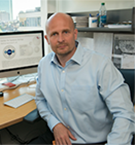
Matthias Nahrendorf, MD, PhD | Richard Moerschner Endowed MGH Research Institute Chair in Men's Health
The Richard Moerschner Endowed MGH Research Institute Chair in Men’s Health is Matthias Nahrendorf, MD, PhD.
The Nahrendorf laboratory focuses on the role of immunity in cardiovascular health and disease, specifically in atherosclerosis and heart failure. Of particular interest are the function, supply and production of leukocytes, and the signals that regulate hematopoiesis after injuries such as myocardial infarction (MI) or stroke. The Nahrendorf lab described that MI activates hematopoietic stem cells in the bone marrow, leading to an often harmful overproduction of white blood cells and a spike in systemic inflammation.
Recent discoveries include that risk factors such as chronic psychosocial stress and a sedentary life style (versus regular exercise) modulate the bone marrow stem cell niche, proliferation of myeloid progenitor cells, the leukocyte repertoire and cardiovascular inflammation. Resident heart macrophages, which are less inflammatory and do not derive from circulating cells, promote steady state functions such as cardiac conduction.

Jayaraj (Jay) Rajagopal, MD | Bernard and Mildred Kayden Endowed MGH Research Institute Chair
Jayaraj (Jay) Rajagopal, MD, was named the new incumbent of the Bernard and Mildred Kayden Endowed MGH Research Institute Chair.
The Rajagopal laboratory is interested in modern cellular and developmental biology approaches to reframing the cellular basis of lung biology. These inquiries serve as a framework to understand how the reactivation and distortion of normal developmental processes results in human lung disease.
His laboratory made the surprising discovery that a fully mature functional cell can durably dedifferentiate into a stem cell. His lab has also identified several new principles of cell communication during regeneration, as well as several new lung cell types including the initial description of pulmonary ionocytes. Current interests include establishing the functions of this new menagerie of cells and their roles in disease.
Dr. Rajagopal is an investigator in the Center for Regenerative Medicine at Massachusetts General Hospital, a professor of medicine at Harvard Medical School and a Howard Hughes Medical Institute (HHMI) Faculty Scholar. He is also an associate member at the Broad Institute and on the faculty of the Harvard Stem Cell Institute.
He directs the Stanbury Unit of the Mass General Department of Medicine that focuses on the training of young physician-scientists and he has been a Robertson Investigator of the New York Stem Cell Institute, a Kevin and Polly Maroni MGH Research Scholar and an Outstanding Investigator of the International Society for Stem Cell Research.

Heidi Rehm, PhD | Rappaport Endowed MGH Research Institute Chair
The inaugural incumbent of the Rappaport Endowed MGH Research Institute Chair is Heidi Rehm, PhD, of the Department of Medicine, the Department of Pathology and founding director of the Genomic Medicine Unit in the Center for Genomic Medicine. She also serves as Mass General’s chief genomics officer.
Dr. Rehm is a renowned scientist and institutional leader whose career has been devoted to the global effort to solve rare diseases. She is at the forefront of advancing standards, systems, and equitable access to genetic testing, laying the foundation for the future of precision medicine. A global leader in characterizing human genetic variation, she works to identify the causes of rare diseases and interpret DNA changes to benefit patients and communities—lighting the path toward cures.
Throughout her career, Dr. Rehm has convened and catalyzed global experts in their relentless pursuit of answers to the most important questions in genomic medicine, playing leadership roles at ClinGen, the Matchmaker Exchange, the Global Alliance for Genomics and Health, the All of Us Genome Center and the Genome Aggregation Database (gnomAD), just to name a few. Dr. Rehm was recently awarded the prestigious 2025 MGH Martin Prize in Clinical Research, recognizing her work in the Center for Mendelian Genetics and Rare Genomes Project, a transformative program to help find genetic causes of rare disease.
Discoveries in the Slaugenhaupt Lab have led to the successful implementation of critical population screening for FD and MLIV, the identification of genes for familial MVP, and more recently to the development of therapeutics for FD and MLIV. Dr. Slaugenhaupt also spearheads several programs and educational initiatives at Mass General, including a thriving undergraduate summer internship program.
Her Research Institute team works to promote science at Mass General by increasing interactions with industry, by fundraising for Research Institute initiatives, including partnering with individual philanthropists, their families and foundations and by promoting Mass General research to both internal and external audiences.
Since 2010 she has co-directed the Mass General Brigham Biobank at Mass General, an exciting initiative that will speed the translation of research discoveries into improved clinical care for patients.
In 2013, Dr. Slaugenhaupt was named an Elizabeth G. Riley and Daniel E. Smith, Jr. MGH Research Scholar 2013-2018. In 2016, she was honored with a prestigious Javits Neuroscience Investigator Award by the National Institute for Neurological Disorders and Stroke (NINDS), and in 2016 she was named one of the Top Ten Women to Watch in Science and Technology by the Boston Business Journal. She was elected to the Board of the American Society of Human Genetics in 2018 and she serves on the Board of Trustees at Eckerd College.

Susan A. Slaugenhaupt, PhD | Elizabeth G. Riley and Daniel E. Smith, Jr. Endowed MGH Research Institute Chair
Dr. Slaugenhaupt is a human geneticist whose work focuses on two neurologic disorders, familial dysautonomia (FD) and mucolipidosis type IV (MLIV), as well as the common cardiac disorder mitral valve prolapse (MVP).
Discoveries in the Slaugenhaupt Lab have led to the successful implementation of critical population screening for FD and MLIV, the identification of genes for familial MVP, and more recently to the development of therapeutics for FD and MLIV. Dr. Slaugenhaupt also spearheads several programs and educational initiatives at Mass General, including a thriving undergraduate summer internship program.
Her Research Institute team works to promote science at Mass General by increasing interactions with industry, by fundraising for Research Institute initiatives, including partnering with individual philanthropists, their families and foundations and by promoting Mass General research to both internal and external audiences.
Since 2010 she has co-directed the Mass General Brigham Biobank at Mass General, an exciting initiative that will speed the translation of research discoveries into improved clinical care for patients.
In 2013, Dr. Slaugenhaupt was named an Elizabeth G. Riley and Daniel E. Smith, Jr. MGH Research Scholar 2013-2018. In 2016, she was honored with a prestigious Javits Neuroscience Investigator Award by the National Institute for Neurological Disorders and Stroke (NINDS), and in 2016 she was named one of the Top Ten Women to Watch in Science and Technology by the Boston Business Journal. She was elected to the Board of the American Society of Human Genetics in 2018 and she serves on the Board of Trustees at Eckerd College.
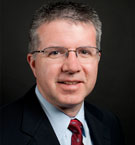
Gary Tearney, MD, PhD | Remondi Family Endowed MGH Research Institute Chair
The inaugural incumbent of the Remondi Family Endowed MGH Research Institute Chair is Guillermo (Gary) Tearney, MD, PhD, of the Department of Pathology and the Wellman Center for Photomedicine.
Dr. Tearney’s research is focused on developing groundbreaking new ways to take images of living cells inside the human body. His lab has developed a pill-sized device attached to a tether that can be swallowed by patients to capture high quality images of the gastrointestinal tract. Once the imaging is complete, the capsule can be removed using the tether.
The device, known as tethered capsule endoscopy, could significantly reduce the need for expensive and invasive surgical biopsies, and greatly improve the accuracy of diagnoses for Barrett’s Esophagus, a precursor to esophageal cancer. Dr. Tearney is now working to translate the device into clinical practice.
“The award means a tremendous amount to me and is a highlight of my career. It is a great honor to have the Remondi Family name associated with the chair and to hold one of the first Endowed MGH Research Institute Chairs,” Dr. Tearney says.
“This endowment will allow us to continually conduct high risk/high reward research that could not be supported by other funding mechanisms.”




